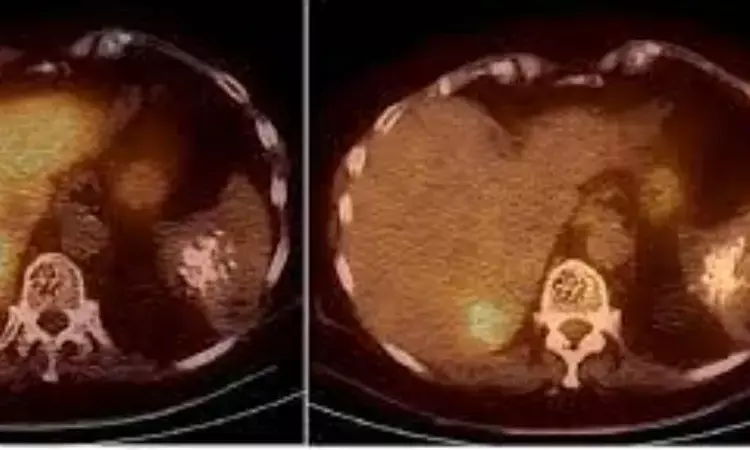- Home
- Medical news & Guidelines
- Anesthesiology
- Cardiology and CTVS
- Critical Care
- Dentistry
- Dermatology
- Diabetes and Endocrinology
- ENT
- Gastroenterology
- Medicine
- Nephrology
- Neurology
- Obstretics-Gynaecology
- Oncology
- Ophthalmology
- Orthopaedics
- Pediatrics-Neonatology
- Psychiatry
- Pulmonology
- Radiology
- Surgery
- Urology
- Laboratory Medicine
- Diet
- Nursing
- Paramedical
- Physiotherapy
- Health news
- Fact Check
- Bone Health Fact Check
- Brain Health Fact Check
- Cancer Related Fact Check
- Child Care Fact Check
- Dental and oral health fact check
- Diabetes and metabolic health fact check
- Diet and Nutrition Fact Check
- Eye and ENT Care Fact Check
- Fitness fact check
- Gut health fact check
- Heart health fact check
- Kidney health fact check
- Medical education fact check
- Men's health fact check
- Respiratory fact check
- Skin and hair care fact check
- Vaccine and Immunization fact check
- Women's health fact check
- AYUSH
- State News
- Andaman and Nicobar Islands
- Andhra Pradesh
- Arunachal Pradesh
- Assam
- Bihar
- Chandigarh
- Chattisgarh
- Dadra and Nagar Haveli
- Daman and Diu
- Delhi
- Goa
- Gujarat
- Haryana
- Himachal Pradesh
- Jammu & Kashmir
- Jharkhand
- Karnataka
- Kerala
- Ladakh
- Lakshadweep
- Madhya Pradesh
- Maharashtra
- Manipur
- Meghalaya
- Mizoram
- Nagaland
- Odisha
- Puducherry
- Punjab
- Rajasthan
- Sikkim
- Tamil Nadu
- Telangana
- Tripura
- Uttar Pradesh
- Uttrakhand
- West Bengal
- Medical Education
- Industry
PET/CT predicts early response to TARE treatment in liver cancer patients: Study

France: A recent study in the American Journal of Roentgenology has shown that early posttreatment evaluation with PET/CT may help identify six-month response and overall survival (OS) after TARE in hepatocellular carcinoma (HCC) patients. This in turn could result in early adapted therapeutic management.
Assessment of the treatment response of HCC after transarterial radioembolization (TARE) is challenging. This is because the response by conventional imaging criteria may not be evident until after 6 months of the treatment. Though HCC shows variability avidity for FDG, some cases of HCC without avidity for FDG show avidity for 18F-FCH.
To address this challenge, Edouard Reizine, Department of Radiology, APHP, HU Henri Mondor, Creteil, Val-de-Marne, France, and colleagues aimed to evaluate the utility of early posttreatment evaluation by PET/CT using FDG or 18F-FCH to predict 6-month treatment response and survival after TARE in HCC patients in a retrospective study.
The study included (mean age 67 years; 34 men, 3 women) with documented HCC treated by TARE who underwent both pretreatment FDG PET/CT and 18F-FCH PET/CT, as well as early FDG PET/CT and/or 18F-FCH PET/CT 4-8 weeks after treatment. FDG PET/CT and 18F-FCH PET/CT examinations were performed on separate dates. Response assessment by mRECIST on multiphase CT or MRI was performed at one month and six months in 23 patients.
Early PET/CT response and one-month mRECIST response were assessed as predictors of six-month mRECIST response. Univariable and multivariable predictors of overall survival (OS) were identified.
On pretreatment PET/CT, 28 (76%) patients were FDG-positive, 15 (41%) FCH-positive 6 (16%) both FDG-positive and FCH-positive.
Based on the study, the researchers found the following:
- Twelve of 28 FDG-positive HCCs exhibited early response by FDG PET/CT; 7 of 15 FCH-positive HCCs exhibited early response by 18F-FCH PET/CT.
- 52% patients exhibited six-month mRECIST response. Early posttreatment PET/CT response exhibited 100% (12/12) sensitivity and 100% (11/11) specificity for six-month mRECIST response, whereas one-month mRECIST response exhibited 67% (8/12) sensitivity and 100% (11/11) specificity for six-month mRECIST response.
- Early postteatment PET/CT response was a significant independent predictor of OS on univariable (hazard ratio: 0.37) and multivariable analyses (hazard ratio: 0.24).
The researchers concluded, "Early post-TARE evaluation by PET/CT using FDG or 18F-FCH may predict six-month response and OS in patients with HCC."
Reference:
American Journal of Roentgenology: -. 10.2214/AJR.21.26485
Dr Kamal Kant Kohli-MBBS, DTCD- a chest specialist with more than 30 years of practice and a flair for writing clinical articles, Dr Kamal Kant Kohli joined Medical Dialogues as a Chief Editor of Medical News. Besides writing articles, as an editor, he proofreads and verifies all the medical content published on Medical Dialogues including those coming from journals, studies,medical conferences,guidelines etc. Email: drkohli@medicaldialogues.in. Contact no. 011-43720751


